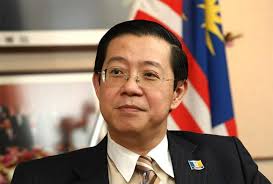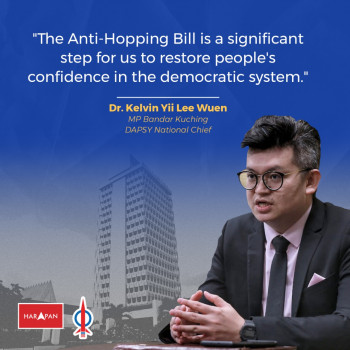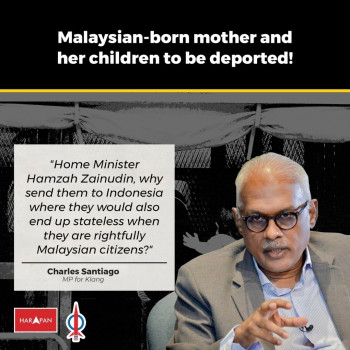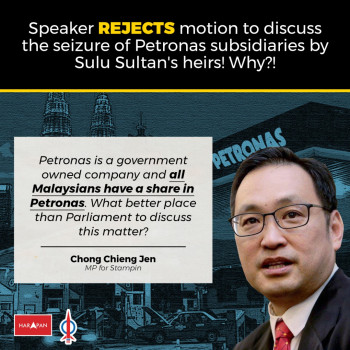By Pauline Wong
For someone in public office, every ringgit spent would come under scrutiny, entrusted as they are in spending public money effectively and for the good of the people.
From what they spend on themselves to the lifestyles they lead, every ringgit has to be accounted for in the interest of transparency and accountability.
In 2012, graft watchdog Transparency International Malaysia (TI-M) urged all elected and public officials to make a full and public disclosure of assets upon assuming office. Then-president Paul Low had said the call is something TI-M has repeated for many years — the full public disclosure of assets to improve the confidence of both Malaysians and foreign investors.
At the time, TI-M had issued the statement after Penang Chief Minister Lim Guan Eng and members of the Penang state executive council (exco) had made public declarations of their assets, which they posted on the state government’s website.
In August 2013, Lim continued to make good on his promise and all assets of the 11 exco members and 19 state assemblymen were again declared on the website.
Penang was not the first to declare their assets, however — in 2011, four Parti Sosialis Malaysia (PSM) representatives also made public declarations of their assets.
The four—Sungai Siput MP Michael Jeyakumar Devaraj, Kota Damansara assemblyman Nasir Hashim, Shah Alam councillor A. Sivarajan and Kajang councillor S. Arutchelvan handed out statutory declarations listing their salaries and assets such as cars and houses to a townhall meeting at the time; they have continued to do so since.
However, the same could not be said for Cabinet ministers, deputy ministers and their family members, who when asked to declare their assets publicly merely said that at best, they would declare their assets to the Prime Minister — not even to the Malaysian Anti-Corruption Commission as judges are supposed to do.
In 2012, then-Minister in the Prime Minister’s Department Nazri Aziz had said public declaration of assets was “dangerous”, since it will also include personal details and it would endanger all involved as outsiders would know how much the ministers are worth.
Nazri’s comments at the time invited derision from all, and rightly so — an individual in public office is exactly that: they are beholden to the public and the trust given to them.
As such, when recent articles surfaced that Prime Minister Najib Abdul Razak’s allegedly ‘large’ inheritance from his late father, Malaysia’s second Prime Minister Tun Abdul Razak Hussein was responsible for the seemingly ‘lavish’ lifestyle of Najib’s wife Rosmah Mansor, the need for public declarations of assets have never been so important.
The Prime Minister’s Office had, according to reports, replied to queries from the New York Times on the source of Najib’s wealth and the wealth of those related to him.
The paper had been seeking responses to its article on February 8 that highlighted the wealth of businessman Low Taek Jho and his role as a property investor, whose transactions involved various parties including Riza Aziz, Najib’s stepson.
However, to newsportal The Malaysian Insider, Najib’s siblings had said that their father was known for his frugality and integrity, dismissing talk of a large inheritance. “We wish to put on record that Tun Abdul Razak was a highly principled man, well-known to all who knew him for his frugality and utmost integrity and any statement or inference to the contrary would be totally false and misleading to his memory and to his service and sacrifices for the nation,” they said in a statement.
This, however, is not the first time a sibling of Najib’s had come out to talk of their father’s thriftiness: Last year, on the anniversary of Tun Razak’s death, Nazir Razak wrote a column where he highlighted his fathers’ frugality and modest lifestyle.
In response, DAP lawmaker Tony Pua had questioned Najib’s source of wealth and urged the prime minister to declare his assets.
DAP leader Lim Kit Siang urged the same — asking Najib to break his silence on his office’s statement attributing his expenditure to an inheritance in light of his family’s statement.
“Elegant silence is no option for the Prime Minister,” Lim said, “I can vouch that Tun Razak was known for his frugality and utmost integrity as I had on no occasion in my years in Parliament from 1971 – 1976 when Razak was the Prime Minister to raise any issue casting any doubt on his integrity.”
There is no doubt that Malaysia’s continuing slow ascent up the Corruption Perception Indexes needs a boost, and public declaration of assets may just be that boost. The question now is: Is there enough political will to do so?
-The Rocket




